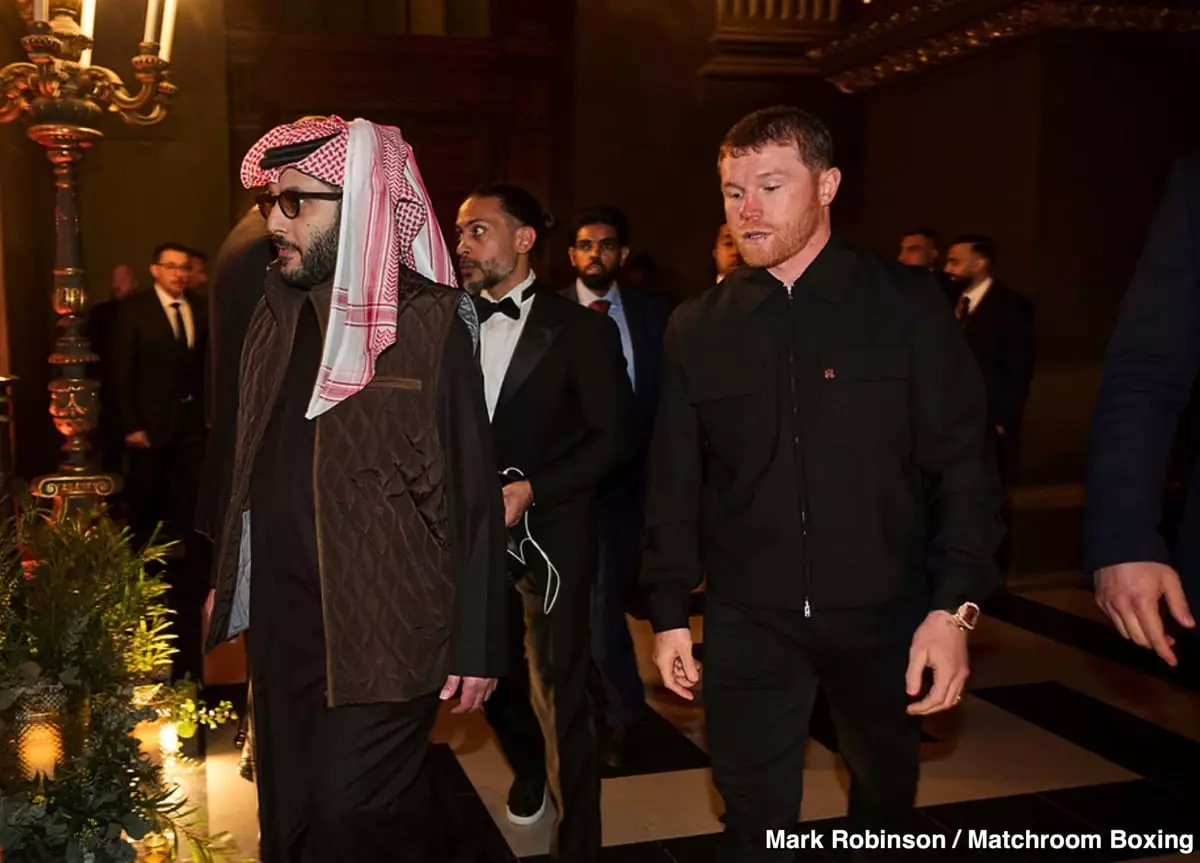The boxing world has always been a hotbed of rivalries and brash personalities, but the recent spat between Oscar De La Hoya and Canelo Alvarez has elevated the drama to unprecedented levels. In a sharp rebuke delivered in a recent episode of “Clap Back Thursday,” De La Hoya directed critical remarks at Alvarez, labeling him a “money-hungry fighter” who prioritizes financial gain over the expectations of loyal fans. This article delves into the nuances of their ongoing dispute and explores the ramifications of Alvarez’s career choices within the boxing industry.
Canelo Alvarez’s decision to engage in a four-fight contract with Turki Al-Sheikh for the Riyadh Season events has ignited heated criticism. De La Hoya pointed out that rather than facing formidable opponents like David Benavidez, Alvarez opted for a less challenging bout against William Scull. The choice raises questions about authenticity and the notion of legacy within boxing. Many in the sport feel that by skipping a fight against Benavidez—who has recently showcased his prowess—Alvarez is avoiding a greater risk for a fight designed primarily for financial incentive. This alteration in his fight schedule appears to reflect a calculating business strategy rather than a genuine quest to solidify his legacy.
The Impact of Financial Decisions on Fan Loyalty
At the heart of the altercation lies the broader issue of loyalty—both to fans and to the sport itself. De La Hoya accused Alvarez of neglecting his roots and disregarding the expectations of his Mexican fan base by focusing on lucrative deals. The boxer’s image appears to be drifting towards that of a “diva,” leading many to question whether he is still committed to the sport that made him famous. The transition from a fighter revered for his skill to one perceived as primarily motivated by monetary gain may alienate a section of his fan demographic. In times of crisis, loyalty to one’s fans is often the cornerstone that upholds an athlete’s legacy.
Legacy vs. Money: Alvarez’s Dilemma
The juxtaposition of legacy and financial stability in Alvarez’s career encapsulates a fundamental conflict plaguing modern boxing. Past champions like Julio Cesar Chavez and Oscar De La Hoya carved out their legacies by engaging in battles against worthy opponents without the distraction of wealth. In contrast, Alvarez’s strategic pull towards financially lucrative matchups has led to perceptions of cowardice, as he dodges potential rivalries that could cement his status as one of the sport’s all-time greats.
This situation raises critical questions about what the future holds for aspiring fighters who idolize Alvarez. Will they prioritize risk and skill, or will they follow in Alvarez’s footsteps, favoring financial gain over legacy? The implications of Alvarez’s choices reach far beyond his immediate career and threaten to shape the ethos of boxing for generations to come.
Boxing rivalries have historically defined eras in the sport. Think of the legendary bouts between Ali and Frazier, or more recently, the rivalry between Gennady Golovkin and Alvarez himself. De La Hoya suggests that Canelo has created an era devoid of gritty competitive spirit, which he accuses of fostering an environment that favors financial security over traditional bravado. This sentiment resonates deeply with boxing purists who lament the decline of fierce rivalries that once drove the sport’s excitement.
Alvarez’s choice to turn down a high-stakes battle against Jake Paul further complicates the narrative. Although Paul may be perceived as a novelty act in boxing, accepting such a challenge could have served to elevate excitement around the sport, even if it seems outside traditional norms. Instead, deviating towards less challenging, high-revenue scenarios makes one wonder about the direction Alvarez is steering his career—and the sport itself.
Oscar De La Hoya’s condemnation of Canelo Alvarez serves as a clarion call for change in boxing. The essence of the sport lies in courage, competition, and the willingness to face worthy opponents, regardless of the financial stakes. Moving forward, it is crucial for Alvarez—and fighters alike—to reflect on their legacies rather than solely consider the next paycheck. Authenticity in boxing cannot be purchased; it must be earned, and the legacy created by risking everything in the ring is the true hallmark of greatness. As the sport continues to evolve, the question remains: will boxing return to its warrior roots, or will it forever remain in the age of the “diva”?


Leave a Reply